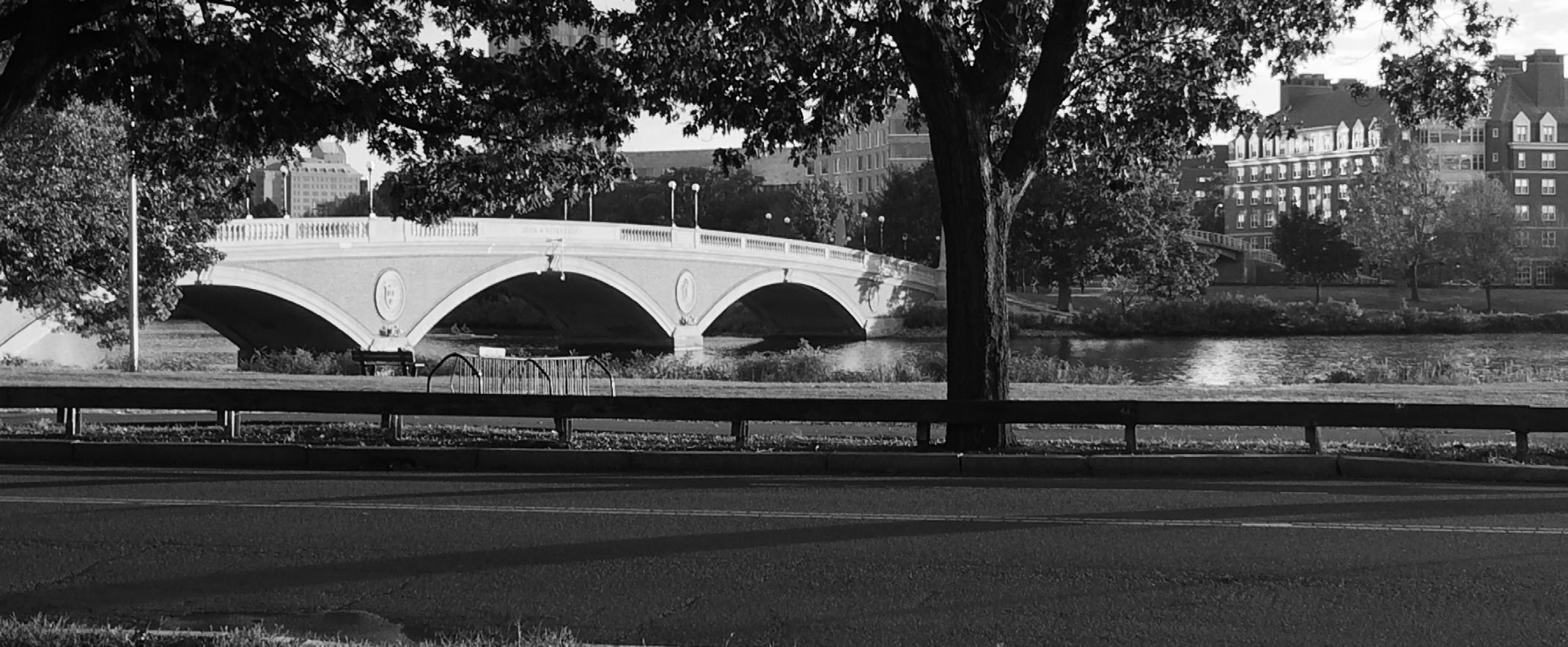PAGE 3
THE HARVARD CRIMSON | FEBRUARY 10, 2020
Committee Voted on Company Practices By CAMILLE G. CALDERA and ELLEN M. BURSTEIN CRIMSON STAFF WRITERS
Harvard’s Committee on Shareholder Responsibility, which is tasked with handling issues of corporate social responsibility, voted on four resolutions presented to Facebook shareholders during the last fiscal year, according to a Friday report. Though the Harvard Management Company increasingly turns to external money managers to invest its $40.9 billion endowment, it still retains shares in some publicly traded companies. Facebook is “one of the few publicly traded companies in which HMC directly held voting shares as of the relevant date in 2019,” per the report.The Corporation Committee on Shareholder Responsibility — which consists of several members of the Harvard Corporation and is chaired by Senior Fellow William F. Lee ’72 — is responsible for all final decisions on shareholder resolutions. Two of the resolutions — which the committee opposed — were related to conservative political ideology at Facebook. Several American conservative politicians have accused Facebook, founded by Harvard dropout Mark E. Zuckerberg, of political bias as the company faces scrutiny for its role in spreading misinformation during the 2016 presidential election. The first of the two resolutions was based on “concerns that the company’s board lacks
ideological diversity and that conservative views cannot safely be expressed in some American boardrooms,” per the report. The resolution requested that a minimum qualification for board nominees be set, and requested that all nominees’ skills, ideological perspectives, and experience be presented in a chart or matrix form. The report said that, in voting against the resolution, committee members reflected upon substantive differences between categories such as gender, sexuality, race, and ethnicity, which are not a matter of personal choice, and “ideological perspectives,” which are. The second resolution sought information on “affirmative action and protection for conservatives” at Facebook, asserting that there is a “dominant political ideology” at Facebook that makes it an unwelcome work environment for some employees. It also requested a report on programs to protect and support employees who “do not share all or part of Silicon Valley’s dominant political ideology,” and to recruit employees from “free-market, conservative and libertarian think tanks, political organizations and job banks.” The committee voted against the resolutions, based on “reservations” about using ideology as a criterion for affirmative action and the existence of discrimination against employees with conservative views at Facebook. The committee voted in favor of
Democratic Candidates Speak at NH Dinner
a proposal introduced in 2018 that asked Facebook to publish a report evaluating “content governance,” with regard to the dissemination of hate speech, misinformation, and images or videos of extreme violence and cruelty. They also voted in favor of a 2019 resolution that requested Facebook report its global median gender pay gap. The report also contained “subject-specific proxy voting guidelines” drafted throughout the year to match the changing nature of HMC’s investment strategy, which involves less direct investment in individual companies and relies more on outside money managers. Three of the eight guidelines focused on the environmental impact of businesses that Harvard invests in by proxy. They included support for reporting and reducing methane emissions, reporting on business risks and climate change, and reducing waste of plastic/polystyrene products. Harvard has faced calls from students and faculty to divest from the fossil fuel industry. University administrators, including University President Lawrence S. Bacow, have resisted calls for divestment. The proxy guidelines also addressed topics such as lobbying and political spending, anti-genocide policies, and gender-, race-, and ethnicity-based pay disparities. camille.caldera@thecrimson.com ellen.burstein@thecrimson.com
By JASPER G. GOODMAN CRIMSON STAFF WRITER
MANCHESTER, N.H. — Democratic presidential hopeful Peter P. M. Buttigieg ’04 fended off rivals’ recent criticisms at a New Hampshire Democratic Party event attended by nearly all the major Democratic primary candidates Sunday. Buttigieg, a former Crimson editorial editor, faced criticism over the weekend from former Vice President Joseph R. Biden, Jr., as well as United States Senators Elizabeth Warren (D-Mass.) and Amy Klobuchar (D-Minn.). Biden — who came in fourthplace in in the Iowa caucuses last week and is lagging in the polls in New Hampshire, which will hold its primary on Tuesday — released an ad criticizing Buttigieg’s work as the mayor of South Bend, Ind., on Sunday. Though he did not name Biden, Buttigieg responded to criticisms in the ad Sunday night at the McIntyre-Shaheen 100 Club Dinner — an annual fundraiser for the New Hampshire Democratic party held at the 11,000-seat Southern New Hampshire University Arena. “I know some are asking: What business does a South Bend Mayor have seeking the highest office in the land?” Buttigieg said. “You don’t have an office in Washington. You don’t have decades of experience in the establishment. The city you’re the mayor of isn’t even the biggest city in the country — it’s more like Man-
chester, New Hampshire.” “To which I say, that is very much the point. Because Americans in small rural towns, in industrial communities — and yes, in pockets of our country’s biggest cities — are tired of being reduced to a punchline by Washington politicians and ready for somebody to take their voice to the American capital,” he added. Diego A. Garcia ’20, the co-founder of Harvard College Democrats for Biden, said in an interview that the former vice president’s record “speaks for itself” in contrast to Buttigieg’s. “I think that Vice President Biden has the utmost respect for our mayors and local government across the country,” Garcia said. “But at the end of the day, what matters in a presidential primary cycle — in a presidential election — is what you’ve accomplished in life,” he added. Sanders, a former Harvard Institute of Politics resident fellow, also sharpened his criticisms of Buttigieg over the weekend by painting him as wealthy donors’ candidate of choice at campaign events and on Twitter. Buttigieg responded Sunday night at the event by rebuking Sanders’ call for a “political revolution.” “With a president this divisive, we cannot risk dividing Americans further, saying that you must either be for a revolution or you must be for the status quo,” Buttigeig said, drawing boos from Sanders support-
ers in the crowd. Garcia said he thinks Sanders supporters booing other candidates is unhelpful for party unity. “I just don’t think it’s healthy for the party for us to be trying to sow this type of discord,” he
I know some are asking: What business does a South Bend Mayor have seeking the highest office in the land? Peter P. M. Buttigieg ‘04 Democratic Primary Candidate
said. Harvard College Democrats for Andrew Yang President Michael Zhu ’22, who attended Sunday’s McIntyre-Shaheen dinner, said in an interview that after hearing from every major Democratic presidential hopeful except for Michael R. Bloomberg — who is not on the ballot in the Granite State — he feels comfortable pledging support to the eventual nominee. “Regardless of anything else, I still consider myself a lifelong Democrat,” Zhu said. “Even before I could actually vote, I’d still stand behind my party, of course.” jasper.goodman@thecrimson.com
DEMS FROM PAGE 1
Harvard Dems Flock to New Hampshire businessman Andrew M. Yang trekked to the Granite State to take part in canvassing and campaign events. “I really enjoy canvassing,” Harvard College Democrats for Biden co-founder Amelia M. Apgar ’20 said. “I think it’s one of the most important parts of running a campaign because you actually are face-toface speaking to the people who matter.” Apgar traveled to volunteer in the Manchester area with three other Harvard students who support Biden. Diego A. Garcia ’20, who founded Harvard College Democrats for Biden alongside Apgar, said the former vice president’s disappointing performance in the Iowa caucuses last Monday has sparked interest in the Biden group on campus. After technical problems delayed the results from being reported last Monday, Biden finished in a distant fourth place with support from just under 16 percent of caucusgoers. The Associated Press eventually decided it could not declare a winner after significant errors in the results were found.
“I think that our Harvard for Biden membership, in addition to a lot of traditional Harvard College Democrats members, [has] really appealed to other demographics within Harvard — other groups within Harvard who have not necessarily canvassed before,” Garcia said. “And they realize with the disappointing result — the gut punch that we received in Iowa — that it was not the time to be sitting on the sidelines.” The Biden group’s canvassing efforts focused mostly on voter turnout during the final weekend before the election. “At this point, I’m not trying to turn a Warren voter over to Biden or anything like that,” said Garcia, who previously canvassed in both Iowa and New Hampshire for Biden. Some students knocking doors for other Democratic hopefuls took a different tack, however. Harvard College Democrats for Andrew Yang volunteers Michael Zhu ’22 and J. Alexander White III ’23, who doorknocked for much of the day on Saturday, engaged in sometimes lengthy conversations
with voters at the door. Zhu, a Social Studies concentrator who founded Harvard College Democrats for Andrew Yang, said canvassing helps to “put a face” on the Yang campaign. “If I can even get some people to see both Andrew Yang, but also just a guy wearing a blue hat that says MATH knocking on their door and telling them about health care or about education reform — I think putting a face on the campaign is so much of what canvassing is about,” Zhu said. The Yang canvassers ran into some New Hampshire residents who were skeptical of the former start-up executive’s ability to pay for his signature proposal — a universal basic income program that would provide American adults with a $1,000-permonth “Freedom Dividend.” Zhu directed one voter who expressed reservations about the policy toward a New York Times op-ed written by longtime Harvard economics professor N. Gregory Mankiw, who called Yang’s plan “practical.” “It’s definitely something backed up by plenty of re-
search,” Zhu said. Despite some voters’ concerns about paying for universal basic income, White said he thinks Yang is electable and could win some voters who supported President Donald J. Trump in 2016. “You have a guy who in a Democratic primary is actually willing to say that Donald Trump did not create all the evil in the world, and that, you know, some of the problems in the world actually created Donald Trump,” White said. Roderick P. Emley ’23, who canvassed for Warren in Rochester, N.H., on Saturday, said voters can sometimes get “really honest with you on the doors in kind of an emotional way.” “On one level it makes me so angry because when you’re talking to people who have these stories, you realize how much injustice there is and that the deck is so stacked against so many people,” Emley said. “But then you can be optimistic about it too, because it feels like doing work like that can actually make a difference.”
Like
The Crimson on Facebook. Facebook.com/ TheHarvardCrimson
jasper.goodman@thecrimson.com
Proud to cover Harvard for 146 years and counting.
The Crimson @thecrimson




